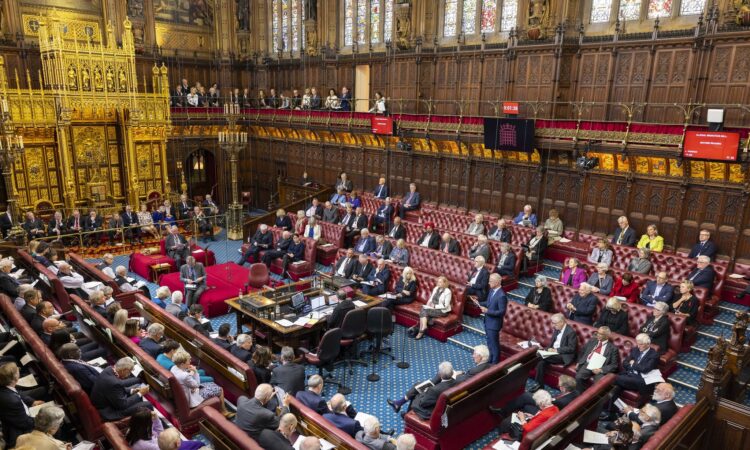
UK parliamentarians have taken a significant step towards recognising cryptocurrencies as a regulated activity with the approval of the Financial Services and Markets Bill (FSMB) by the House of Lords.
The move brings the bill closer to becoming law, marking an important development in the country’s approach to digital assets.
Anto Paroian, CEO at ARK36, said:
“At ARK36, we feel the news that the UK parliament has just voted through a new bill which could essentially recognise cryptocurrencies as a regulated activity and stablecoins as a means of payment could bring about significant benefits for crypto investors, including improved market integrity, increased institutional participation, and a broader acceptance of cryptocurrencies as a legitimate form of financial innovation.
If the bill is accepted and put into law, this could propel the cryptocurrency industry as a whole into a more mature and respected position within the global financial landscape while putting Britain on the map as a potential global hub for crypto.”
The FSMB, comprising over 340 pages, was introduced in July as an opportunity to leverage the post-Brexit landscape and grant regulators greater authority over the UK financial system.
Michael Silberberg, Head of Investor Relations at AltTab Capital, commented:
“Brexit has provided the UK with the opportunity to establish its own regulatory framework for the crypto industry, independent of the European Union’s regulations. This newfound autonomy allows UK lawmakers to tailor the regulations specifically to the needs of the crypto sector and create an environment that is conducive to innovation and growth.
By striking the right balance, the UK can avoid burdening the industry with excessive red tape and regulatory hurdles. This approach could foster a business-friendly environment that attracts crypto startups and investors who are seeking a core domicile that provides both clarities in regulation and favourable conditions for their operations.
The UK should look toward Switzerland, another (mostly) independent jurisdiction in the EU that has led the way with crypto regulation to support both the industry and the consumer.”
Initially centred on the regulation of stablecoins, the bill underwent amendments as it progressed through Parliament, ultimately encompassing provisions to treat all cryptocurrencies as regulated activities and establish measures for supervising crypto promotions.
The primary objective of the FSMB is to empower regulators with the necessary tools to formulate crypto regulations, a matter that the Treasury has been actively consulting on.
The Economic Secretary to the Treasury, Andrew Griffith, indicated in April that the UK could expect new specific rules for the crypto sector within a year. This endeavour demonstrates the UK’s efforts to catch up with the European Union, which recently concluded its Markets in Crypto Assets regulation, primarily targeting stablecoins.
The next phase for the FSMB involves its return to the lower house of Parliament, where a final version will be agreed upon. Once both houses reach a consensus, the bill will be presented to the monarch for approval and enactment into law. It is important to note that the bill may undergo several rounds of scrutiny and revision between the chambers of Parliament before a final agreement is reached.
The recognition of cryptocurrencies as a regulated activity signifies a significant shift in the UK’s approach to the digital asset landscape.
By establishing clear rules and supervision mechanisms, the government aims to provide clarity and stability for businesses and investors operating in the crypto space. Regulation can also serve to enhance consumer protection, mitigate risks associated with illicit activities, and promote the growth of the overall digital asset industry.
Moreover, the acknowledgement of cryptocurrencies as a regulated activity can potentially attract more institutional investors who have been hesitant to enter the market due to concerns about a lack of oversight.
As cryptocurrencies continue to gain mainstream attention and adoption, robust regulatory frameworks can foster trust and credibility, facilitating broader participation from traditional financial institutions and fostering innovation in the sector.
While the FSMB’s journey through Parliament is not yet complete, the progress made thus far signals the UK’s commitment to establishing a comprehensive regulatory framework for cryptocurrencies.
As the bill moves closer to becoming law, the UK is positioning itself to navigate the evolving digital asset landscape and assert its status as a leading global hub for cryptocurrency-related businesses and investments.
(Image Credit: House of Lords 2023 / Roger Harris under CC BY-NC-ND 2.0 license)

Want to learn more about blockchain from industry leaders? Check out Blockchain Expo taking place in Amsterdam, California and London.
Explore other upcoming enterprise technology events and webinars powered by TechForge here.






